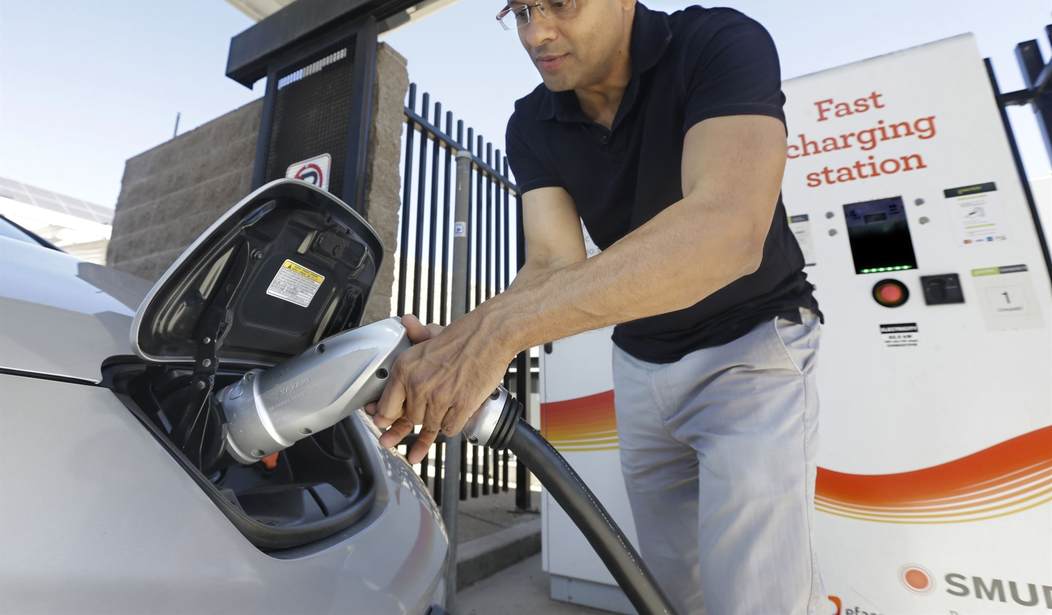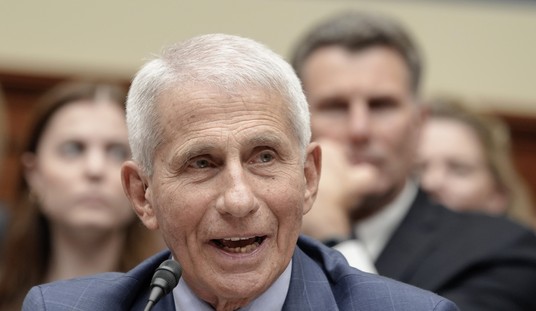The Great Climate Change Revolution is headed for failure. You can tell that because it is already in big trouble before the ultimate heavy lifting has even started.
International accords, (i.e. Paris Agreement) passed with great fanfare to ensure cooperation on emissions reductions, are ignored by most of the signers, notably China. Consumers worldwide are balking at increased energy prices. Unsold EVs are piling up.
All this resistance is occurring well before the full rollout of the regulations and restrictions needed to achieve zero net carbon emissions by 2050, the agreed-upon goal of climate activists worldwide.
It may not seem at first glance like the climate change movement is struggling. After all, mainstream dogma still holds that man-made warming has us careening toward disaster, possibly an uninhabitable planet. The only solution is to “just stop oil” along with coal and gas.
As John Kerry explains, there is no alternative. Biden’s proposals have nothing to do with politics nor ideology. “It’s entirely a reaction to the science, to the mathematics and physics that explain what is happening.”
It was no surprise, then, when Biden officials recently rolled out new CO2 emissions requirements, maintaining the same endpoint by 2032. The only way for auto makers to comply would be for gas-powered cars to comprise only 30 percent of new car sales.
But there’s a telling detail. The 2030 requirements have been relaxed, which means that they’re still going to put the squeeze on to force more EV sales, just not right now. But what’s going to change to make regulations more palatable in 2032 than in 2030? There’s no evidence that the demand for EVs will be greater or that consumers will be more interested in purchasing them.
Recommended
EVs were envisioned as the cutting edge of the “zero by fifty” campaign. If we could replace the outmoded, smoke-belching anachronisms on the roads with sleek new vehicles lacking tailpipe emissions, the new atmospheric standards would be a piece of cake.
But there are problems. Consumers aren’t wild about EVs. After years of the feds promoting them and subsidizing them in every way thinkable, they still account for just 8 percent of new car sales.
They are still too expensive, recharging can be difficult and they have poor resale value. Moreover, the giant batteries are a disposal nightmare. EVs increase soot pollution. Depending on the fuel source used to produce the electricity, they may produce no net carbon reduction anyway!
Auto makers for now are slashing prices on the mandated EVs and making up for it with profits from gas-powered cars. Ford alone lost $4.7 billion last year on EV production, a whopping $64,000 per EV sold.
Yet the Biden administration soldiers on, insisting EVs can capture 70 percent of all sales within eight years. Hint: they can’t. Look for other accommodations to reality to be made. Meanwhile they are doing a lot of economic damage, for no possible benefit.
Americans are less caught up in climate panic than ever. Surveys revealed that of all the issues in this year’s election, voters rank climate change 10th in importance. “We’re number 10” may not make an inspiring campaign slogan, but the massive media, academic and governmental infrastructure dedicated to its promotion means the climate change industry won’t disappear anytime soon.
As Swedish economist Björn Lomborg points out, climate change is a problem but only one of several mankind must grapple with. Meta-analysis of all scientific estimates shows climate change costs will likely average 1 percent of GDP across the century, a figure sure to be dwarfed by anticipated economic growth. Meanwhile, the proposed solutions insisted upon by the panic advocates will average $27 trillion annually or seven times more than the problem itself.
Costs aside, we lead better lives because of fossil fuels. Abundant energy has more than doubled lifespans, dramatically reduced hunger and increased personal income tenfold. Climate related deaths from droughts, storms, floods and fires have declined an astonishing 97 percent over the last century.
The worst thing we could do is to drive ourselves into poverty by “following the (false) science.” We need to stay economically and technically strong to be able to accommodate change as needed. Human beings do that, you know.

























Join the conversation as a VIP Member